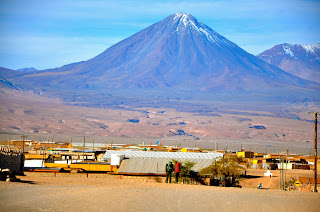If you’ve been reading my blog for any length of time, you’ve probably seen some of my posts on the impossible2Possible organization and the ways they use adventure to educate and empower students around the globe. I’ve always admired the way the i2P team comes up with some interesting challenges and destinations, then creates curriculum for teachers to use in their classrooms to help students to understand and relate to the the place and the issues that people living there face.
The following is an op-ed piece written by Dr. George Agnes, the Associate Dean of Sciences at Simon Fraser University. Dr. Agnus worked on helping to develop lesson plans for i2P’s latest expedition to Botswana and is in a unique position to assess the impact of using adventure-based learning to raise engagement in students. The good doctor shares his thoughts on that very subject below.
Adventure experiences sow seeds for students to solve global issues
These students were participating in an impossible2Possible (i2P) youth expedition. A U.S.-based nonprofit organization co-founded by Canadian Ray Zahab, i2P’s mission is to encourage youth to reach beyond their perceived limits, and to use adventure as a medium to educate, inspire and empower the global community to make positive change.
With insightful contributions from others at SFU, I produced an inquiry-based curriculum for this expedition and travelled to Botswana to facilitate and support learning on the ground. The curriculum was also used in more than 125 schools worldwide and reached nearly 10,000 students, including hundreds in the Lower Mainland. In these classrooms, students’ grade 6 to 12 conducted experiments exploring the value of water and its effect on human life, and interacted directly with the i2P participants via satellite video. This transported the expedition experience directly into the classroom and enabled students to engage in a manner that informed the next steps in their curriculum-based experiments.
In the case of an i2P youth expedition, learning takes place in remote, harsh landscapes where global geo-political and environmental issues – such as water access, food security and healthcare – are explored. As a result, participants develop accountability and responsibility regarding the focal issue as well as a lifelong commitment to pursue solutions to it and related issues. For example, in the drought-ridden Kalahari, access to clean water can mean the difference between life and death. To emphasize this, students ran a marathon a day in 40 degree Celsius heat, consuming eight liters of clean water a day and cultivating a deep appreciation for easy accessibility to water in the process.
Taking adventure-based learning to the wider public has many challenges. Teachers implementing expedition-based concepts in a classroom for students who have little or no access to the expedition often have their efforts stymied from a lack of context. Through technological advances, an expedition’s curriculum can take on new meaning when students become participants in inquiry-based exercises of their own design, such as scientific experimentation, and are then empowered to discuss their results and obtain feedback in real-time with participants in the field. Such experiential learning is one way to inspire student imagination, innovation and a deeper commitment to investigate in-depth issues from local to global perspectives. In partnering with i2P, our academic curriculum reached thousands of students around the globe, challenging each of them to pursue excellence in both athletics and academics.
In the past, adventure-based learning has been offered at a high cost to university students who can afford expedition and tuition fees, with most college-aged students unable to participate and certainly not elementary or high school students.
Today, middle schools and high schools across the Lower Mainland are running adventure-based education programs. At Prince of Wales High School in Vancouver, the TREK Program teaches students how the natural world impacts their daily lives and how they impact the environment. In Mission and Abbotsford, the Community Recreation Programs at W.J. Mouat and Mission secondary schools introduce students to the role of exercise and nature in combating stress-related illness.
At SFU, “academic leadership” courses are being developed based on the multi-disciplinary curriculums created for i2P. Courses are designed to lay foundations for student-inspired learning and excellence in disciplinary foundational concepts, and provide outstanding introductions to complex global issues that they themselves may be tasked with solving during their careers. Students in these courses will extensively investigate the issues the expedition participants are expected to witness and function as mentors to expedition participants.
Often referred to as “21st century learning,” adventure-based learning represents a new type of student experience. By leveraging technological tools to bring an expedition to life in classrooms, educators and students can engage with individuals and communities far afield and work together to find solutions to pressing global issues – issues that affect all of our lives profoundly. Such opportunities help engage students in shaping their futures by developing a knowledge base and value system that will shape and inform the rest of their lives.
Dr. George Agnes is Associate Dean of Science at Simon Fraser University.
- Gear Review: The Xero Scrambler Mid is an Ultralight Hiking Shoe for Spring - March 1, 2023
- Gear Review: Yeti Roadie 48 Wheeled Cooler - August 18, 2022
- Kristin Harila Continues Pursuit of 8000-Meter Speed Record - August 16, 2022
